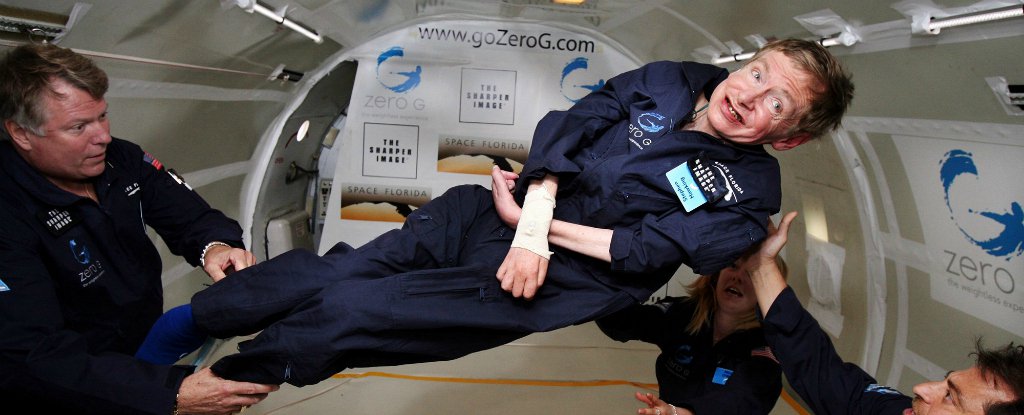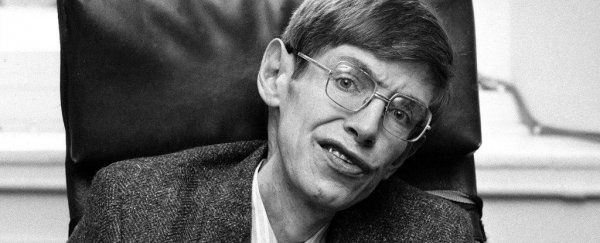One of the greatest minds of our time, physicist and author Stephen Hawking has died at the age of 76, according to news reports from the United Kingdom.
"We are deeply saddened that our beloved father passed away today," Hawking's family said in a statement released on Wednesday morning.
"He was a great scientist and an extraordinary man whose work and legacy will live on for many years. His courage and persistence with his brilliance and humour inspired people across the world.
"He once said: 'It would not be much of a universe if it wasn't home to the people you love.' We will miss him for ever."
Hawking, whose brilliant career in theoretical physics and cosmology spanned six decades, remained an active science communicator until his last days. Just earlier this month he mused about existence before the Big Bang with Neil deGrasse Tyson on his popular Star Talk show.
In 1963, at the age of 21 he was diagnosed with a rare form of early-onset motor neurone disease or ALS, and doctors gave him the grim prognosis of just a few more years of life. Instead, Hawking lived another 55 years, making stellar contributions to science for more than half a century.
As a graduate student of cosmology at the University of Cambridge, Hawking wrote his PhD thesis on the "properties of an expanding Universe", mathematically demonstrating that the Big Bang theory was physically possible.
This was the very first step towards the singularity theorems he developed with mathematician Sir Roger Penrose starting in 1970, using the mathematics of black holes to prove that a universe which is ruled by the general theory of relativity must have begun as a singularity.
In the 1970s, Hawking turned his brilliant mind to bringing quantum mechanics into the mix, proposing that radiation can actually escape from a black hole thanks to laws from the quantum realm.
This suggestion stirred up a massive debate in cosmology, as it didn't gel with our understanding of how time moves in our Universe. And, true to form, Hawking never gave up on the problem himself, publishing a new paper on his black hole paradox just two years ago.
But his most famous work remains the popular cosmology book A Brief History of Time, which has sold millions of copies across 35 languages in the past 30 years.
In the very first chapter, Hawking wrote:
"Ever since the dawn of civilization, people have not been content to see events as unconnected and inexplicable. They have craved an understanding of the underlying order in the world. Today we still yearn to know why we are here and where we came from. Humanity's deepest desire for knowledge is justification enough for our continuing quest. And our goal is nothing less than a complete description of the universe we live in."
The book, a stirring exploration of the frontiers of cosmology for a non-specialist audience, was first published in 1988 with an introduction by Carl Sagan. In it, Sagan mentions attending a meeting of the newest fellows formally joining The Royal Society in the spring of 1974:
"In the front row, a young man in a wheelchair was, very slowly, signing his name in a book that bore on its earliest pages the signature of Isaac Newton," Sagan wrote.
"When at last he finished, there was a stirring ovation. Stephen Hawking was a legend even then."
Tributes to the professor have also been streaming in on social media:
Sad to hear about Stephen Hawking. What a remarkable life. His contributions to science will be used as long as there are scientists, and there are many more scientists because of him. He spoke about the value and fragility of human life and civilisation and greatly enhanced both
— Brian Cox (@ProfBrianCox) March 14, 2018
Genius is so fine and rare. Goodbye Professor Hawking. You inspired and taught us all. pic.twitter.com/9Drdnv2eEe
— Chris Hadfield (@Cmdr_Hadfield) March 14, 2018
“It would not be much of a universe if it wasn’t home to the people you love” - Dr. Stephen Hawking 😢😢😢 pic.twitter.com/TK53EqP1Xp
— April (@April_54f) March 14, 2018
“It would not be much of a universe if it wasn’t home to the people you love.” RIP Stephen Hawking pic.twitter.com/5f49ucp2Of
— Ben Wikler (@benwikler) March 14, 2018
“One, remember to look up at the stars and not down at your feet. Two, never give up work. Work gives you meaning and purpose and life is empty without it. Three, if you are lucky enough to find love, remember it is there and don't throw it away”
— Julia Wilde (@Julia_SCI) March 14, 2018
-Stephen Hawking
The universe just became a little less comprehensible. Vale #StephenHawking
— Ms D 🌈 (@msdwrites) March 14, 2018
Sad to hear about the passing of one of our greatest minds, #StephenHawking. He will be missed. pic.twitter.com/WDHKU0ulc8
— Nick Walden Poublon (@NWPinPDX) March 14, 2018
 (Jim Campbell/Aero-News Network/Wikimedia)
(Jim Campbell/Aero-News Network/Wikimedia)
Goodbye, Professor Hawking. The world will miss you.
